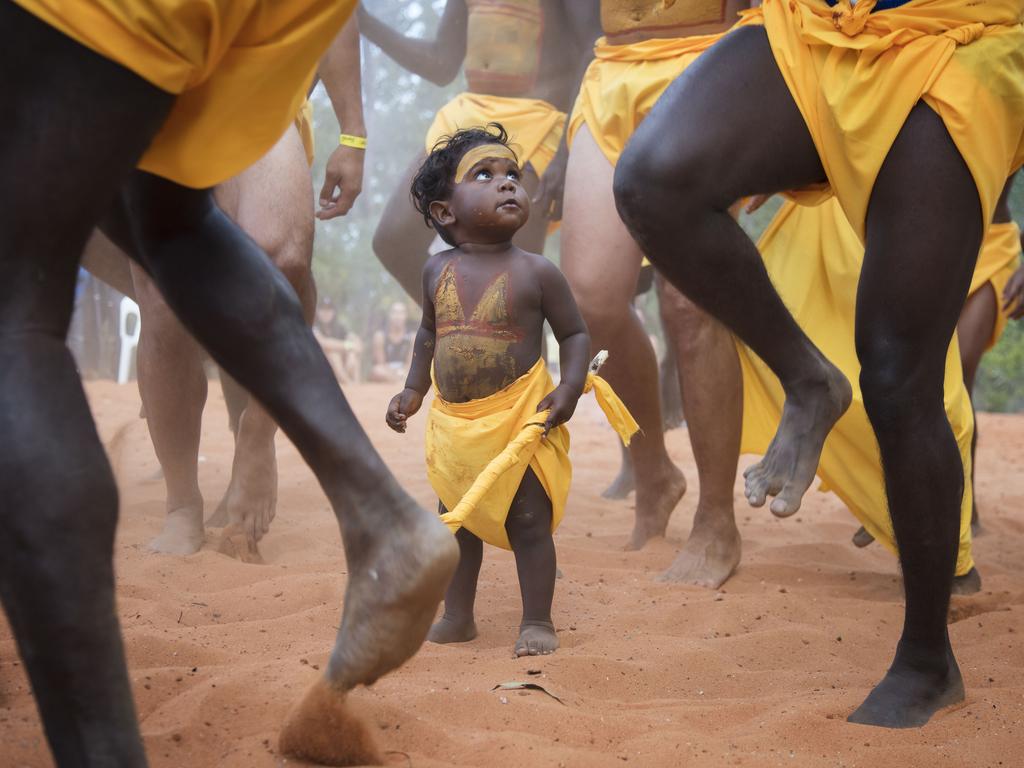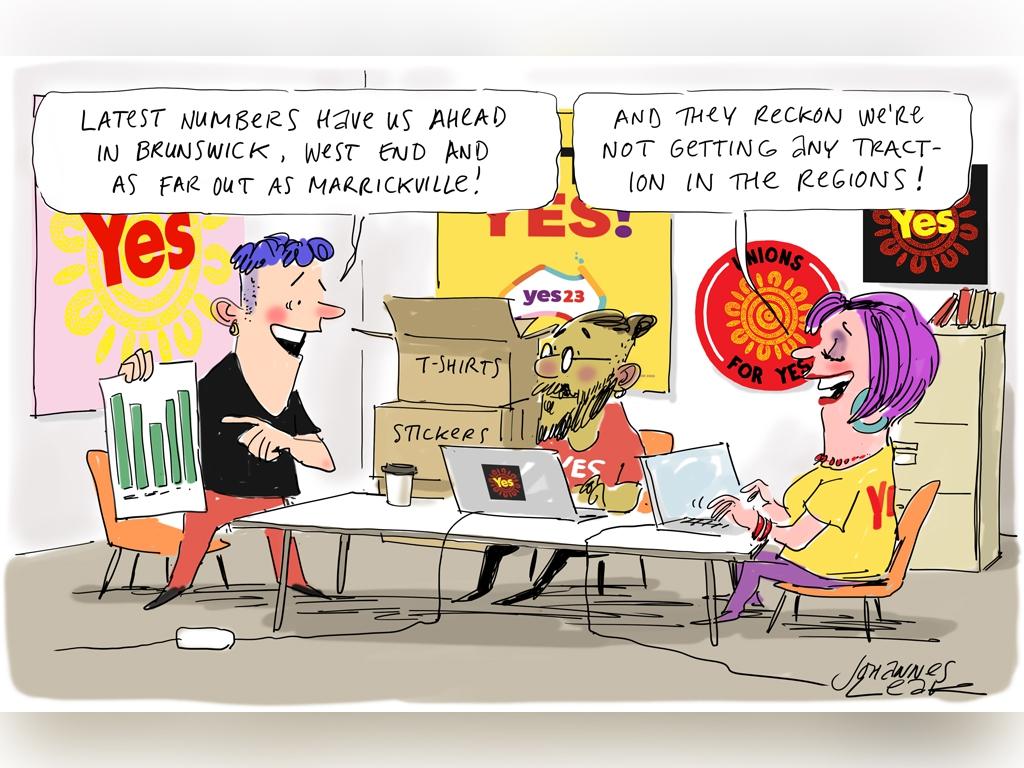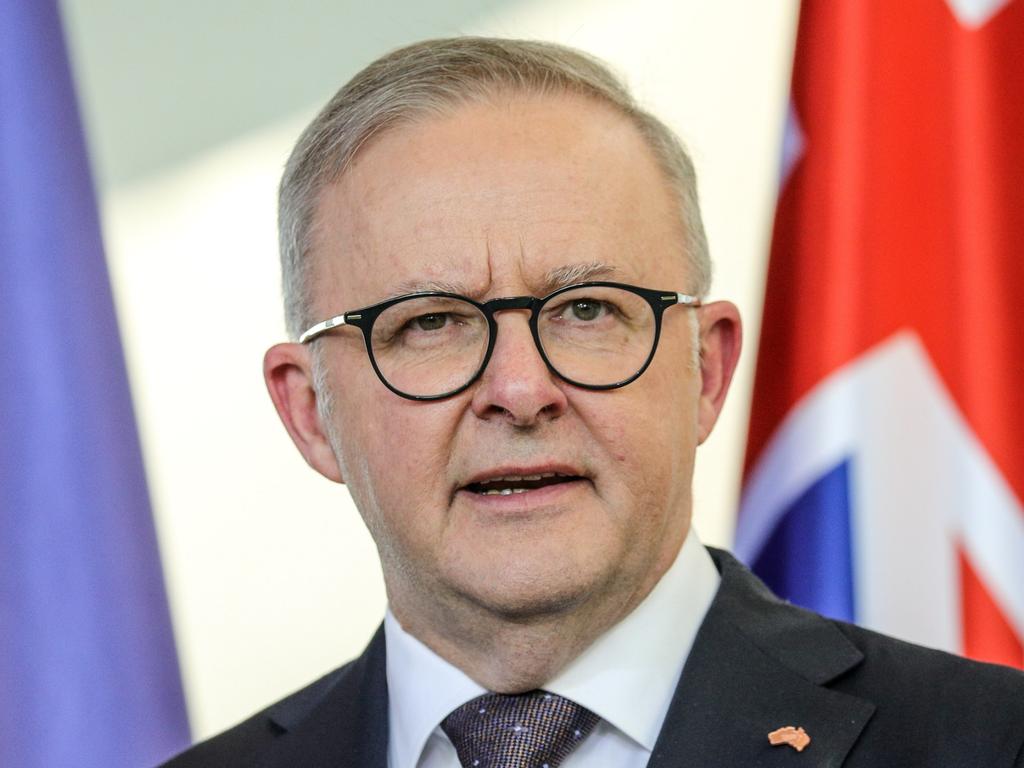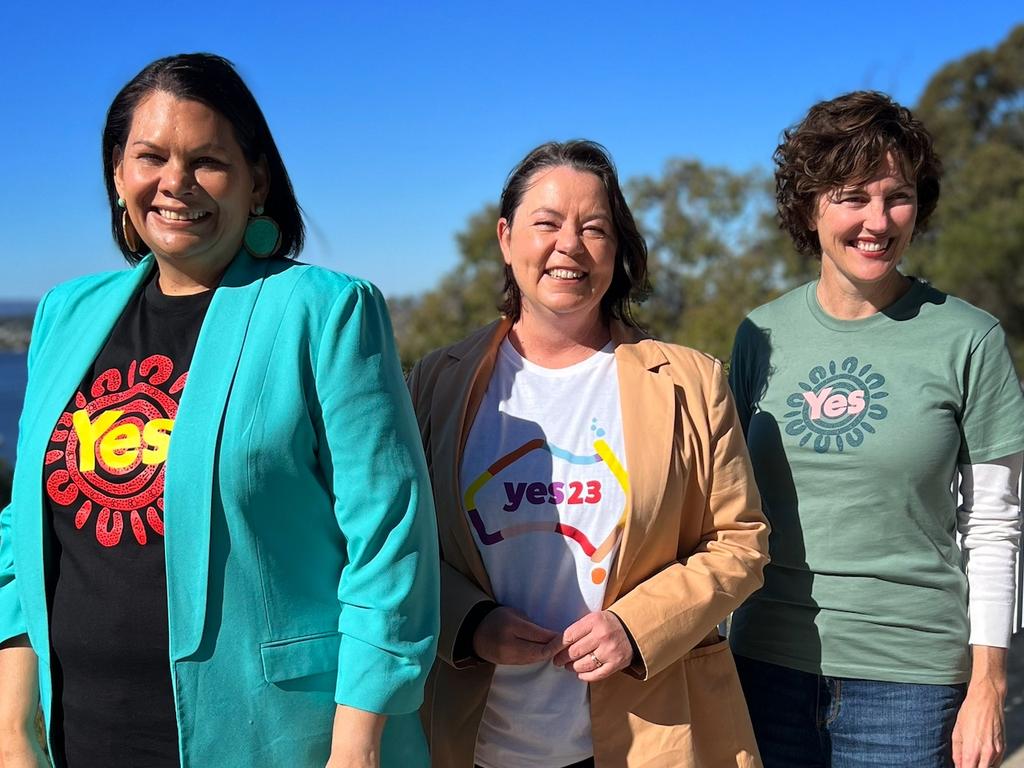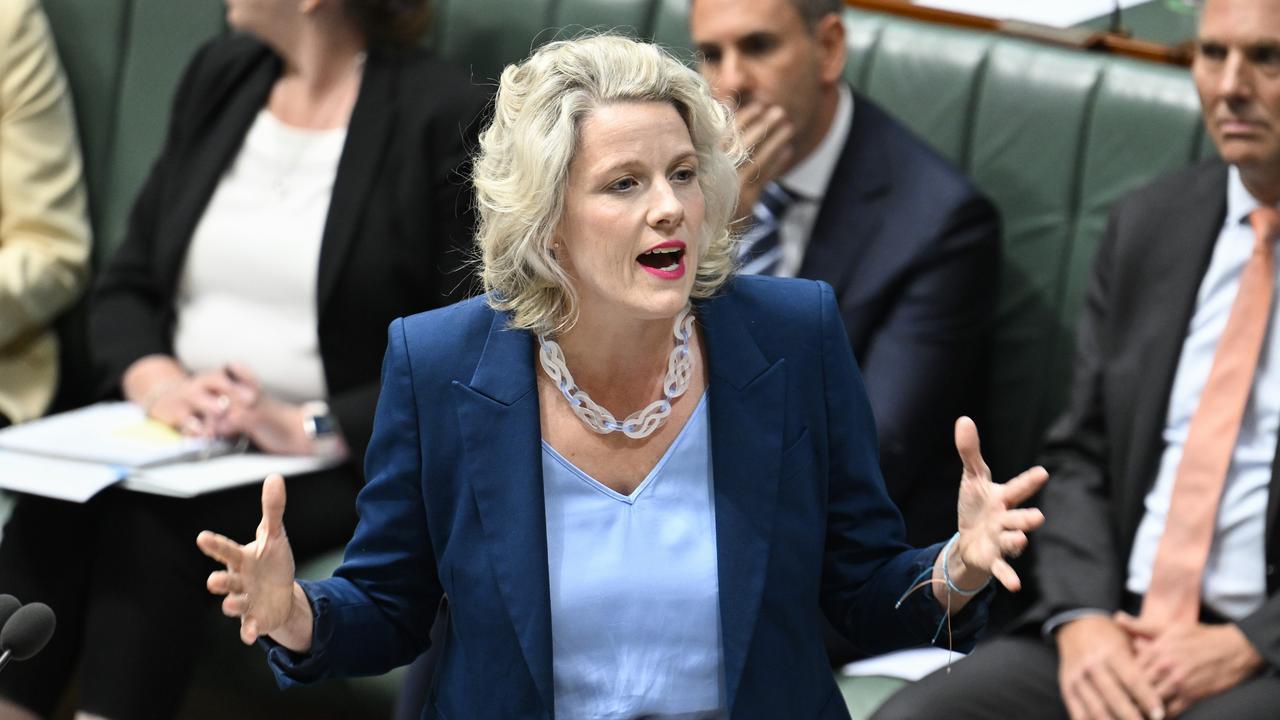Women, regional voters lead rebellion on Indigenous voice to parliament: Newspoll
Women for the first time were now more likely to vote no than men, in a central change to core support based on gender.
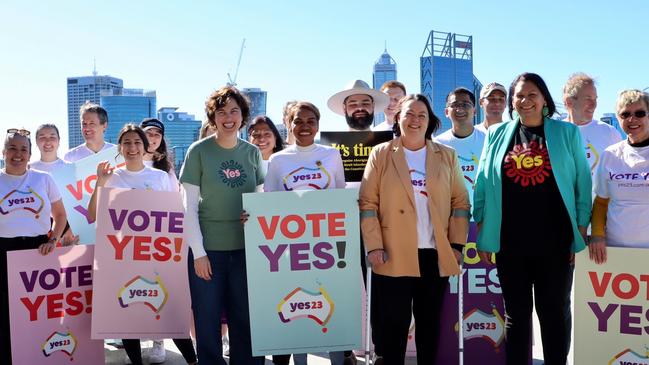
The referendum for an Indigenous voice to parliament has suffered a collapse in support among women voters and in the regions as the referendum heads toward defeat, with just 41 per cent of voters now saying they will vote yes.
For the first time, women are now more likely than men to vote no, a central change to core support based on gender.
The No vote in the regions has also blown out to 62 per cent, confirming a widening demographic split between city and bush.
An exclusive Newspoll commissioned by The Australian showing a further decline in support for the voice in the past three weeks comes as both sides submit their official campaign pamphlets to the Australian Electoral Commission for release.
The Australian has confirmed the No campaign provided its pamphlet to the AEC on Friday, with the Yes23 group submitting its pamphlet on Monday.
Labor, the Greens, teal independents and Liberals for Yes will join forces this week to promote the Yes23 movement, while the No campaign gears up for a heavily funded digital campaign.
But the Albanese government faces a deteriorating outcome with overall support for the voice to parliament and executive government falling further in the past three weeks in the wake of confusion over its function and scope.
The latest Newspoll survey shows 48 per cent of voters say they now intend to vote no, confirming a widening margin between the two camps and the lowest level of backing for the model since it was first proposed by the Albanese government.
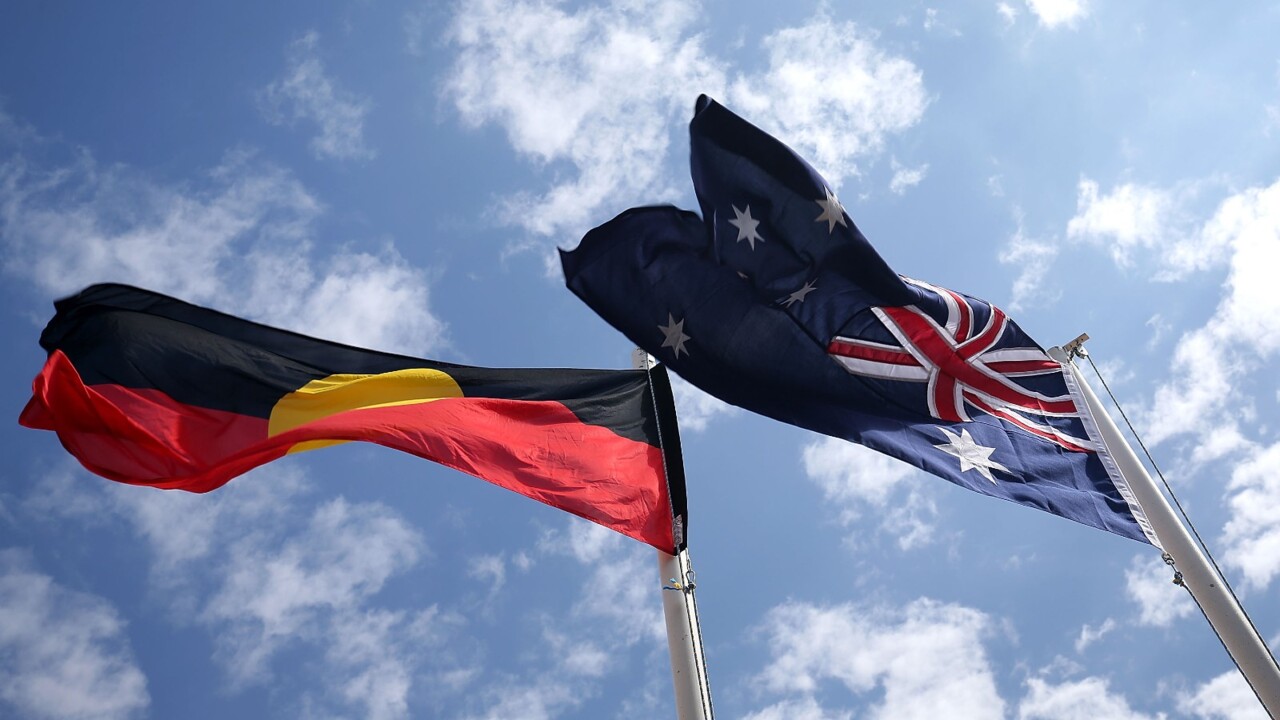
It confirms a downward trend in support, dropping from 46 per cent in favour in May, to 43 per cent in June and 41 per cent in the latest survey.
The No vote has risen from 43 per cent, to 47 per cent and now 48 per cent over the same period. No date has been set for the referendum, which is likely to be held in October.
But in a reflection of the targeted campaign by the No camp, the greatest shift in sentiment has been among women voters, with a 10-point fall in support in the past three weeks.
Just 38 per cent of female voters now say they approve.
By contrast, support among male voters increased seven points to 45 per cent with 47 opposed, while 49 per cent of female voters now indicated a No vote.
Support in regional communities has also fallen sharply from 40 per cent in favour in June, to 31 per cent in the latest survey, with the No vote rising from 51 per cent to 62 per cent. The only key demographics showing support above 50 per cent were among 18-to-34-year-olds and the university-educated. But even then, among these groups favourability has fallen.
In the previous survey 63 per cent of younger voters approved of the proposed referendum compared to 59 per cent in the latest poll – with a rise in the number who now say they are undecided.
The No vote has also hardened among the older demographics, while those aged between 35 to 49 showed a two-point rise in support to 46 per cent compared to 43 per cent opposed.
While there was little movement along party lines among Labor, Coalition and Greens supporters, support among those identifying as minor party or independent voters fell nine points to just 20 per cent.
The Newspoll was conducted between July 12 and July 15 and surveyed 1570 voters throughout Australia. Voters were asked if they approved of altering the Constitution to recognise First Peoples of Australia by establishing an Aboriginal and Torres Strait Islander voice.
This is the wording of the question to be put at the referendum.
The latest Newspoll covers a period in which the political debate in Canberra was largely focused on the voice’s functions, and a Press Club speech by Indigenous Australians Minister Linda Burney, a Wiradjuri woman, who sought to clarify what the voice would be able to advise government on.
In an attempt to extinguish concerns about the scope of the voice, Ms Burney pointed to four priority areas she wanted it to focus on, including health, education and employment, but was forced to clarify that the voice would decide what it did and didn’t seek to provide advice on.
Ahead of the release of the official Yes23 pamphlet, she claimed there was cross-party support.
“A voice is an idea many years in the making and many Indigenous Australians have put a great deal of hard work into achieving constitutional recognition,” Ms Burney said.
“I encourage Australians to join this national conversation about constitutional recognition through a voice and consider how we can make practical change that will improve lives.”
Coalition senator Jacinta Nampijinpa Price, a Warlpiri woman campaigning against the voice, said: “When I travel around the country it’s clear to me that support for the No campaign is growing, particularly in remote and rural communities.
“Australians out here want details, real consultation and transparency. Instead they’ve been given a proposal that is risky, full of unknowns and enshrines division in the Constitution.
“My colleagues and I have put together a pamphlet we believe outlines the strongest case, with a simple and clear message, say no to this risky, permanent and divisive voice. I encourage all Australians to read it.”
Greens First Nations spokeswoman senator Dorinda Cox, a Yamatji Noongar woman, said: “Now is the time for the country to come together and say yes to justice for First Nations people.
“By voting yes, we are saying First Nations people should have a say and this right can never be taken away. A successful referendum can be a big step … to truth and treaty for the country.”
Independent member for the Western Australian seat of Curtin, Kate Chaney, said the Yes23 pamphlet would provide a clear articulation for the yes case.
“The voice is a low-risk, high-return opportunity to unite all Australians,” she said. “Once people understand the practicalities of the voice as a means of long-overdue recognition, they start to see it as an exciting step in creating a fairer country.”


